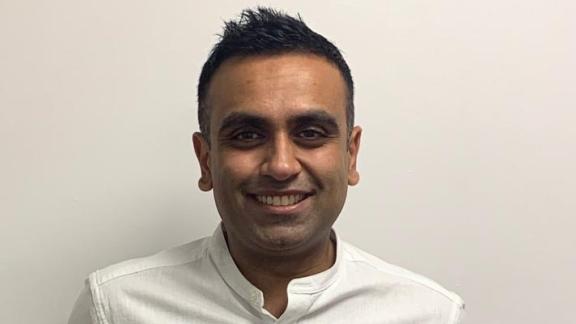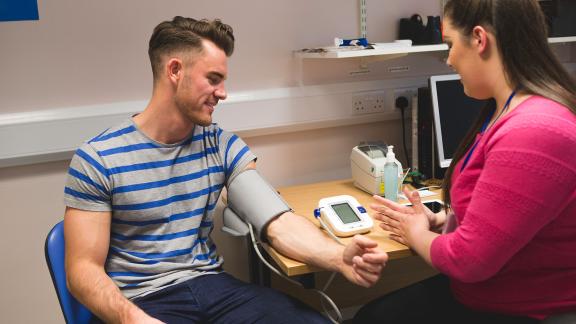Primary care networks moving into the next phase of the NHS

Two years on from their creation, Dr Pramit Patel, chair of the PCN Network, reflects on the successes of primary care networks and reveals his vision for addressing current challenges and for the future.
This year has been one of the most challenging years that I can remember as a GP.
We have seen primary care change its operating model overnight at the same time as designing and mobilising new primary care network (PCN) services. We have welcomed new members to our workforce (some of whom are brand new to the NHS, let alone primary care) and collaborated with cross-sector organisations such as our community pharmacy colleagues. And that only scratches the surface.
As the new newly elected chair of the NHS Confederation’s PCN Network, the first thing I’d like to say is ‘Thank you’.
When I reflect on all of that, against the backdrop of delivering close to three-quarters of the COVID-19 vaccinations to our residents in the middle of a global pandemic, all I can say is ‘Wow’.
Of course, it all takes its toll on our workforce, and we need to be mindful of that. It has been a long 18 months.
Vision for the PCN Network
Given all of this, my vision for the PCN Network is to be its support structure, be its authentic voice for PCNs, be the forum where we create solutions and, more importantly, ensure that whatever models of care we create, we always do so with the patient at the centre.
PCNs can be invaluable in getting the NHS Long Term Plan back on track.
For the whole of the NHS, including PCNs, there is still a long way to go. There is a sizeable elective treatment backlog and the population’s health has taken a hit during the pandemic.
One thing that is clear from discussion with colleagues across the network is that there is confidence that with the right resource and space, PCNs can be invaluable in getting the NHS Long Term Plan back on track in driving forward expanded and improved services for patients, enhancing out of hospital care and supporting people to stay well in the community.
Integrated working
To be able to do this requires collaboration with our partner organisations and regulators alike, such as the BMA, RCGP, NAPC, CQC, National Voices, Healthwatch, Patient Voices and NHS England and NHS Improvement colleagues. Throughout my career I have always embraced a collaborative approach and I will be no different as the network chair.
As we start the integrated care system journeys within our regions, our relations with sister NHS Confederation networks will be crucial, and I am confident that these connections built within the NHS Confederation family will be so valuable to all of our primary care networks up and down the country. As your chair, you will have that commitment from me as a minimum.
We have simultaneously pressed ahead, despite huge workload pressures, to build stakeholder relationships and develop our workforce.
I am hoping you will find that our recent report, Primary Care Networks: Two Years On, accurately reflects the position of PCNs. The team has captured how we have risen to the challenges and demands brought about by the pandemic, the galvanising impact of the vaccination programme, but also how we have simultaneously pressed ahead, despite huge workload pressures, to build stakeholder relationships and develop our workforce.
Influencing change
All of us at the network are grateful to those of you who joined our engagement sessions or took part in the survey, both of which guided the contents of the report which will itself be used by the PCN Network to influence national policy change.
We have all risen to the challenges of the pandemic but as we move into the next phase of the NHS - and as PCNs and ICSs develop - there will be sharper focus on population health management. In my opinion there is no better place to start doing that than in primary care networks.
Dr Pramit Patel is chair of the PCN Network and GP partner at Greystone House Surgery.



